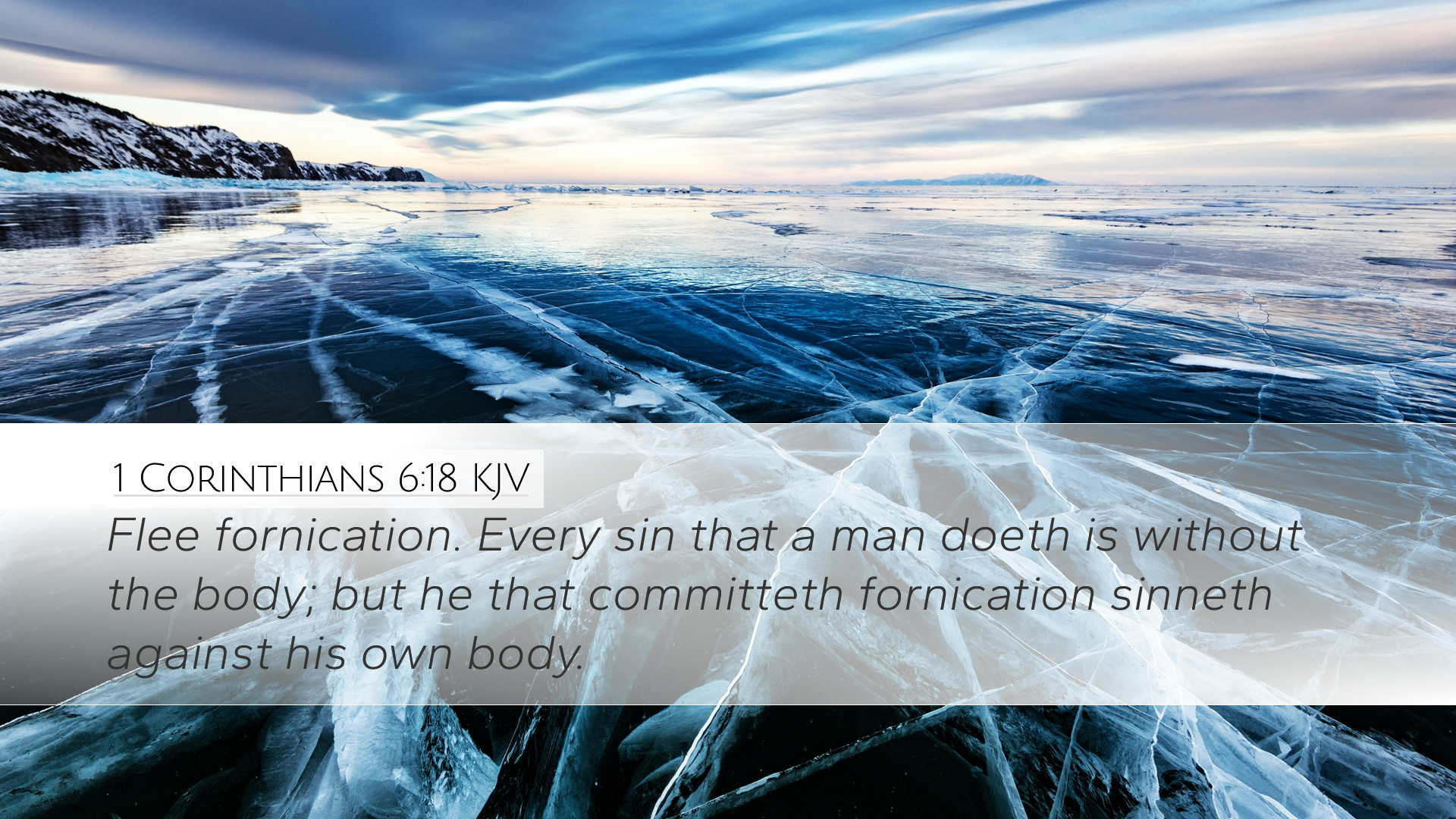Commentary on 1 Corinthians 6:18
Bible Verse: "Flee from sexual immorality. Every other sin a person commits is outside the body, but the sexually immoral person sins against his own body." - 1 Corinthians 6:18
Introduction
This verse encapsulates the serious nature of sexual immorality, emphasizing its unique impact on the individual. Paul writes to the Corinthian church amidst a culture rampant with sexual immorality, urging believers to reject such conduct. The discussion here merges the theological, ethical, and practical aspects of human behavior, particularly in the realm of sexual ethics.
Insights from Public Domain Commentaries
Matthew Henry
Henry emphasizes the call to "flee" from sexual immorality, highlighting the urgency and necessity of active avoidance of temptation. He discusses the idea that while all sins are grievous, those of a sexual nature carry an extraordinary weight as they defile the body, the temple of the Holy Spirit. He notes that the body is not to be used as an instrument for sin but is intended for God's glory. Henry points out that this instruction reflects both God’s holiness and the gravity of sin's consequences.
Albert Barnes
Barnes comments on the metaphor of fleeing as indicative of the believer's duty to actively distance themselves from sinful environments and temptations. He provides a deeper theological understanding that every sin, unlike sexual immorality, does not result in a direct defilement of the body. Barnes expounds on the notion that sexual sin produces a unique defilement because it violates the intended unity and sanctity of the body, which is a vessel for the Holy Spirit. He encourages reflection on the body’s sacred purpose and the inherent dignity bestowed upon it by God.
Adam Clarke
Clarke analyzes the sociocultural context of Corinth, indicating that the rampant immorality of the city pressured even believers. He underscores that Paul instructs them to "flee," implying a strategic retreat from temptation rather than mere resistance. Clarke delves into the phrase "sins against his own body," elucidating that such sin engenders a much deeper consequence that corrupts both the spirit and body. He reinforces that understanding such consequences is vital for a vibrant spiritual life and community witness.
Theological Implications
This verse invites profound theological exploration regarding the body as a temple. As Paul delineates the nature of sin, he emphasizes that sexual sins are distinct for their personal and corporeal ramifications, affecting one's relationship with God. The understanding of the body in biblical thought as holistically integrated into spiritual communion elevates the call for purity and sanctity.
Ethical and Practical Applications
The call to flee provides practical wisdom for pastoral care and Christian discipleship. It extends beyond simply avoiding sexual sin; it encompasses attitudes, media consumption, and relationships that foster purity. Leaders are called to encourage accountability and cultivate environments that promote holiness and spiritual growth.
- Active Engagement: Churches must engage in honest conversations about sexual ethics, providing a safe space for questions and struggles.
- Community Support: Establishing support groups to help individuals flee from sexual immorality can embed accountability within a community.
- Education: Teaching on the sanctity of the body and the implications of sexual sin can transform mindsets and behaviors.
- Prayer and Counsel: Encouraging prayer and pastoral counseling for those struggling with sexual sin is crucial for healing and restoration.
Conclusion
In closing, Paul’s exhortation in 1 Corinthians 6:18 serves as a vital reminder of the intrinsic value of the body in the life of a believer. The commentaries of Henry, Barnes, and Clarke enrich our understanding, illustrating the urgency of fleeing from immorality and the serious implications of loosening one’s grasp on sexual purity. As we navigate the contemporary cultural landscape, the Church must be diligent in teaching and upholding these truths, ensuring that believers remain aware of their divine identity and the sanctity of the body as a dwelling place of the Holy Spirit.


